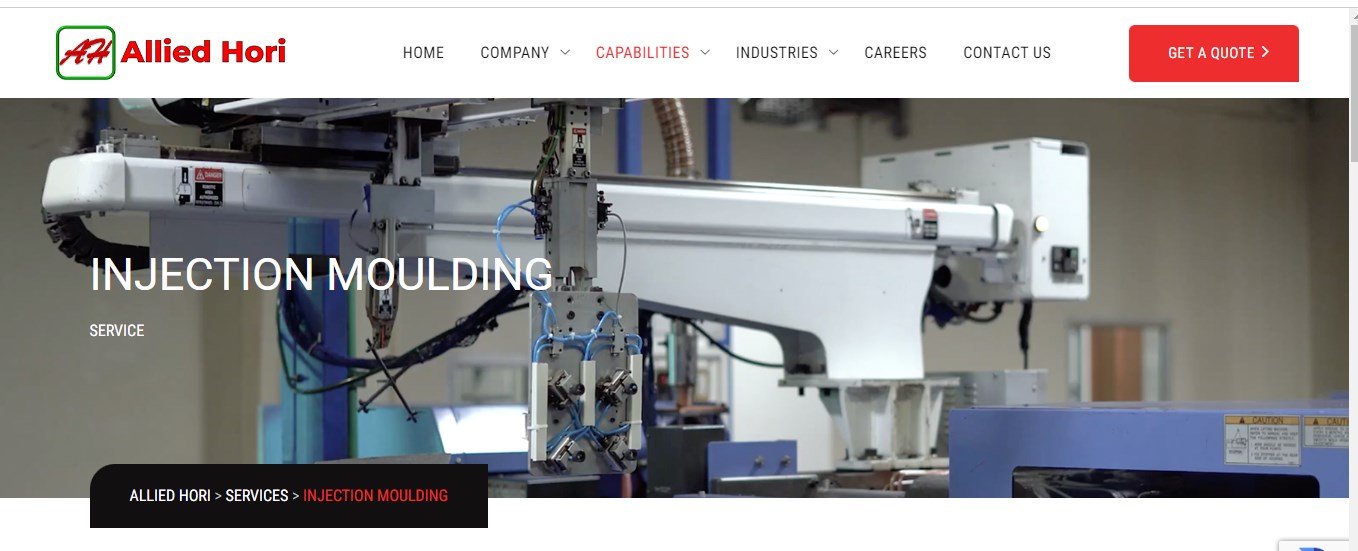Plastic moulding injection services have revolutionized manufacturing processes across various industries. This guide delves into the intricacies of plastic moulding injection, outlining its benefits, applications, and the essential factors to consider when choosing a service provider.
What is Plastic Moulding Injection?
The plastic moulding injection service is a manufacturing process that involves injecting molten plastic material into a mould to form specific shapes. This technique is widely used for mass production of plastic parts, ranging from household items to intricate components for automotive and medical devices. The process is efficient, cost-effective, and capable of producing high-precision products with complex geometries.
Benefits of Plastic Moulding Injection
High Efficiency and Production Speed
One of the primary advantages of plastic moulding injection is its high efficiency. Once the mould is designed and the machine is set up, the production process is rapid, allowing manufacturers to produce large quantities of parts in a short period. This efficiency is crucial for industries that require high-volume production.
Consistent Quality and Precision
Plastic moulding injection ensures consistent quality and precision in the produced parts. The process allows for tight tolerances, ensuring that each part meets the exact specifications. This consistency is essential for industries where precision is critical, such as aerospace, medical, and automotive sectors.
Cost-Effectiveness
The initial investment in mould design and machinery can be high, but the cost per unit decreases significantly with large-scale production. This cost-effectiveness makes plastic moulding injection an attractive option for companies looking to produce high volumes of parts without compromising on quality.
Versatility
Plastic moulding injection is highly versatile and can be used to create parts of varying sizes, shapes, and complexities. The process supports a wide range of plastic materials, each offering different properties, such as flexibility, durability, and resistance to heat and chemicals. This versatility allows manufacturers to choose the best material for their specific application.
Applications of Plastic Moulding Injection
Plastic moulding injection services are utilized in numerous industries, each benefiting from the process’s unique advantages.
Automotive Industry
The automotive industry relies heavily on plastic moulding injection for producing parts like dashboards, bumpers, and interior panels. The process allows for the creation of lightweight, durable components that improve vehicle performance and fuel efficiency.
Medical Industry
In the medical industry, precision and hygiene are paramount. Plastic moulding injection is used to manufacture medical devices, surgical instruments, and components for diagnostic equipment. The process ensures that these parts meet stringent quality and safety standards.
Consumer Goods
Plastic moulding injection is widely used in the production of consumer goods, including household appliances, toys, and electronics. The ability to produce high-quality, aesthetically pleasing parts at a low cost makes it ideal for this industry.
Packaging
The packaging industry benefits from plastic moulding injection by producing durable and lightweight packaging solutions. This includes everything from food containers to pharmaceutical packaging, ensuring products are protected and preserved.
Factors to Consider When Choosing a Plastic Moulding Injection Service Provider
Selecting the right service provider is crucial for the success of your plastic moulding injection project. Here are some essential factors to consider:
Experience and Expertise
Choose a service provider with extensive experience and expertise in plastic moulding injection. A company with a proven track record will be more capable of handling complex projects and delivering high-quality results.
Technology and Equipment
Ensure that the service provider uses state-of-the-art technology and equipment. Advanced machinery and tools can significantly impact the quality, precision, and efficiency of the production process.
Material Selection
The choice of material is critical in plastic moulding injection. Work with a provider that offers a wide range of plastic materials and can advise on the best material for your specific application. Factors like durability, flexibility, and resistance to environmental conditions should be considered.
Quality Control
Quality control is essential in ensuring that the produced parts meet the required standards. Choose a service provider that has robust quality control processes in place, including regular inspections and testing of parts.
Cost and Turnaround Time
Consider the cost and turnaround time of the service provider. While it’s important to find a cost-effective solution, ensure that the provider can deliver high-quality parts within your required timeframe.
Customer Support
Good customer support is vital for a successful partnership. Choose a provider that offers excellent customer service, including clear communication, prompt responses, and support throughout the project.
Steps Involved in Plastic Moulding Injection
Understanding the steps involved in plastic moulding injection can help you better manage your project and communicate effectively with your service provider.
Design and Prototyping
The first step is designing the part and creating a prototype. This involves using CAD software to create a detailed design, followed by the production of a prototype to test and refine the design.
Mould Making
Once the design is finalized, the mould is created. This involves machining a mould from metal, typically steel or aluminum, to match the part’s design.
Injection Moulding
In this step, the molten plastic material is injected into the mould under high pressure. The material cools and solidifies, forming the desired shape.
Ejection and Finishing
After the plastic has solidified, the part is ejected from the mould. This is followed by any necessary finishing processes, such as trimming excess material, painting, or assembling multiple parts.
Quality Control and Inspection
The final step involves inspecting the produced parts to ensure they meet the required quality standards. This includes checking for defects, measuring dimensions, and testing the parts’ performance.
Conclusion
Plastic moulding injection services offer a highly efficient, cost-effective, and versatile solution for producing high-quality plastic parts. By understanding the benefits, applications, and key factors to consider when choosing a service provider, you can ensure the success of your plastic moulding injection project. Whether you are in the automotive, medical, consumer goods, or packaging industry, plastic moulding injection can provide the precision and reliability you need for your manufacturing needs.

